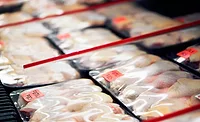U.S. Food Recalls Have Doubled Since 2002, Says Swiss Firm
A new report by Swiss Re--a wholesale provider of reinsurance, insurance and other insurance-based forms of risk transfer--declares that the number of food recalls issued in the U.S. since 2002 has nearly doubled. The report entitled “Food Safety in a Globalized World” was released earlier this month.
Why the increase?
There are more regulations in place now more than ever, and the food chain continues to become increasingly globalized.
"In a more globalised economy, ensuring the highest level of food safety is becoming an ever greater challenge for firms," says Jayne Plunkett, head of casualty reinsurance at Swiss Re. "Today, ingredients and technologies are sourced worldwide. This leads to greater complexity for food manufacturers and consumer and regulatory demands on companies are continually increasing."
While it’s always been difficult to estimate how much recalls truly cost food companies, Swiss Re’s report claims that “52 percent of all food recalls cost the affected U.S. companies more than $10 million each, and losses of more than $100 million are possible.” These numbers do not include what Swiss Re describes as “reputational damage” that can take years to recover from.
Outside the U.S., other factors play a role in food contamination. Populations are growing older. The number of people suffering from food allergies is on the rise. Regions that are affected by malnourishment have significantly more people whose bodies and poor health cannot sustain some types of food poisoning.
The U.S. Department of Agriculture estimates that the cost of hospitalized patients and lost wages in 2013 alone was $15.6 billion.
Looking for quick answers on food safety topics?
Try Ask FSM, our new smart AI search tool.
Ask FSM →








